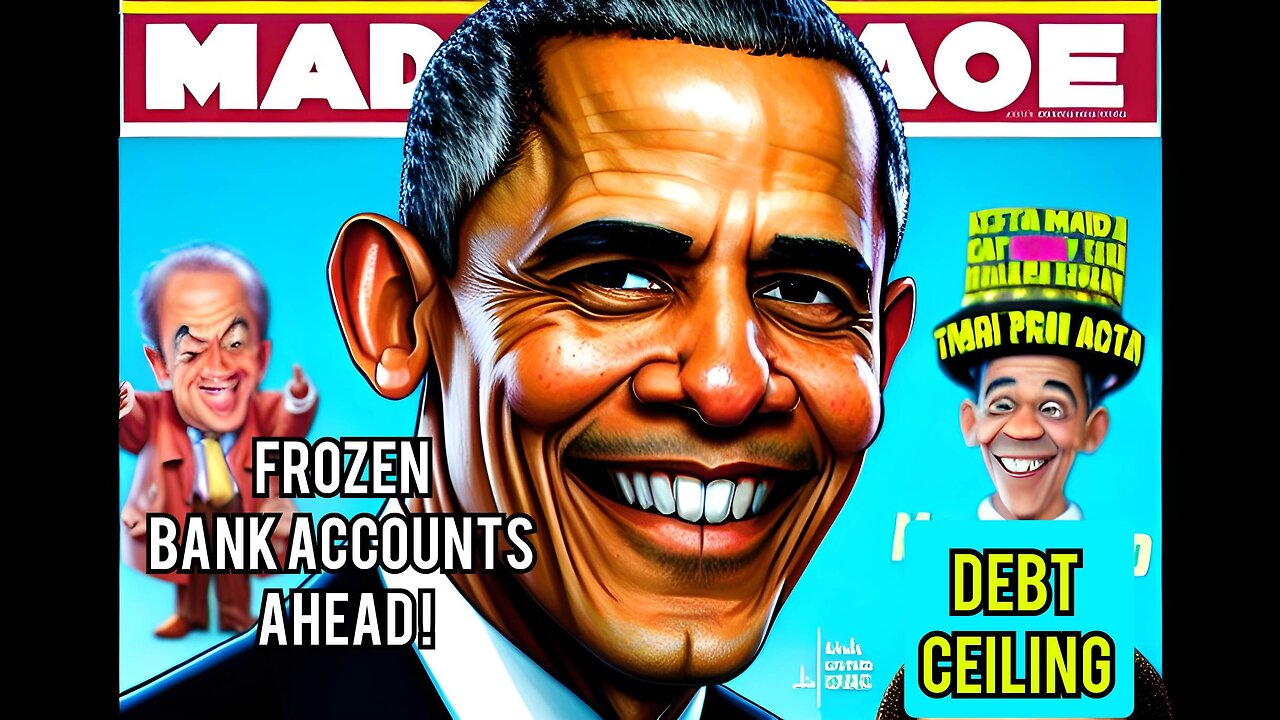Premium Only Content

US Government will Freeze American Bank Withdrawals , US debt limit: Ceiling In serious Trouble!
With U.S. political polarization deepening over the last decade, votes to raise the debt ceiling have remained contentious, with congressional budget hawks increasingly demanding spending cuts in return for their support. When the debt ceiling was set to expire in 2013, debate over the limit forced the government into a shutdown, and in 2021, the issue again came down to the wire. As policymakers once more deliberate an increase to the debt ceiling in 2023, President Biden has said he will settle for nothing less than a no-strings-attached increase.
Meanwhile, Republicans led by House Majority Leader Kevin McCarthy have used their majority in the House of Representatives to condition a debt ceiling increase on reductions in federal spending. “If you gave your child a credit card and they kept hitting the limit, you wouldn't just keep increasing it. You would sit down with them to identify where they are overspending and where they can change their behavior,” McCarthy wrote on Twitter. “It’s time for the federal government to do the same thing.”
In April 2023, the Republican-led House passed a bill that would suspend the debt ceiling in exchange for cutting federal spending by almost 14 percent over the next decade. Analysts say the bill has no chance of passing the Democrat-led Senate, and Biden has threatened to veto the measure
What would be the consequences if the United States breaches the debt ceiling?
The debate over the debt ceiling has caused economists such as CFR’s Roger Ferguson to consider the once unthinkable prospect of a U.S. default—that is, Washington declaring that it can no longer pay its debts. Some experts say that would herald chaos for the U.S. and global economies. Even short of default, hitting the debt ceiling would hamstring the government’s ability to finance its operations, including providing for the national defense or funding entitlements such as Medicare or Social Security.
Potential repercussions of reaching the ceiling include a downgrade by credit rating agencies, increased borrowing costs for businesses and homeowners alike, and a dropoff in consumer confidence that could shock the U.S. financial market and tip the economy into recession. Goldman Sachs economists have estimated that a breach of the debt ceiling would immediately halt about one-tenth of U.S. economic activity. According to center-left think tank Third Way, a breach that leads to default could cause the loss of three million jobs, add $130,000 to the cost of an average thirty-year mortgage, and raise interest rates enough to increase the national debt by $850 billion. In addition, higher interest rates could divert future taxpayer money away from much-needed federal investments in such areas as infrastructure, education, and health care.
“Failure to meet the government’s obligations would cause irreparable harm to the U.S. economy, the livelihoods of all Americans and global financial stability,” Treasury Secretary and former Federal Reserve Chair Janet Yellen wrote to Congress [PDF] in January 2023.
-
 6:53
6:53
Mike Martins Channel
6 days agoStrata Fee Mafia in Canada
120 -
 5:59:05
5:59:05
SpartakusLIVE
10 hours ago#1 MACHINE Never Stops The GRIND || LAST Stream UNTIL Friday
152K3 -
 28:36
28:36
Afshin Rattansi's Going Underground
1 day agoDoug Bandow: ENORMOUS DAMAGE Done to US’ Reputation Over Gaza, Trump ‘Easily Manipulated’ by Israel
33.4K34 -
 2:45:13
2:45:13
Barry Cunningham
17 hours agoCBS CAUGHT AGAIN! CHICAGO A MESS! LISA COOK IS COOKED AND MORE LABOR DAY NEWS!
122K51 -
 6:39:17
6:39:17
StevieTLIVE
11 hours agoMASSIVE Warzone Wins on Labor Day w/ Spartakus
37.9K1 -
 10:46:42
10:46:42
Rallied
17 hours ago $18.70 earnedWarzone Challenges w/ Doc & Bob
204K4 -
 3:26:25
3:26:25
Joe Donuts Live
10 hours ago🟢 Lost in Space with My Clones: The Alters Adventure Begins
40.2K5 -
 7:20:22
7:20:22
Dr Disrespect
19 hours ago🔴LIVE - DR DISRESPECT - TRIPLE THREAT CHALLENGE - WINNING AT EVERYTHING
227K12 -
 2:35:33
2:35:33
Chrono
11 hours agoBirthday-eve Stream | Helldivers II
33.3K1 -
 54:40
54:40
BonginoReport
1 day agoLABOR DAY SPECIAL! The Best of Nightly Scroll - Nightly Scroll w/ Hayley Caronia (Ep.124)
140K16